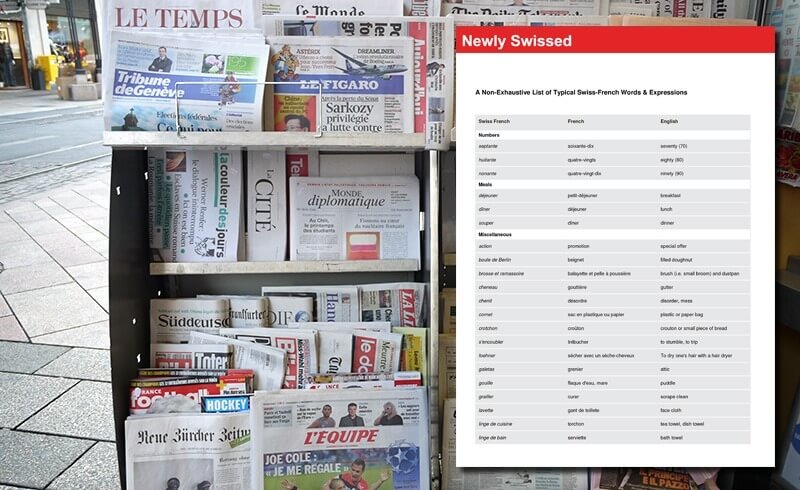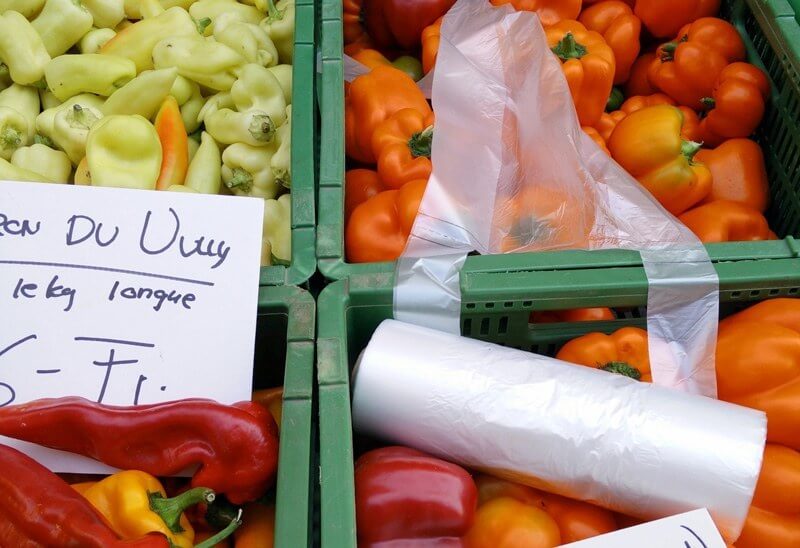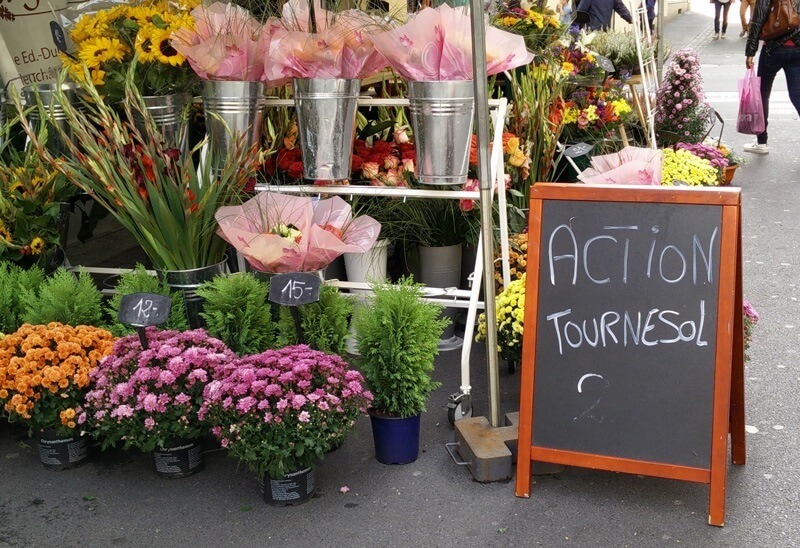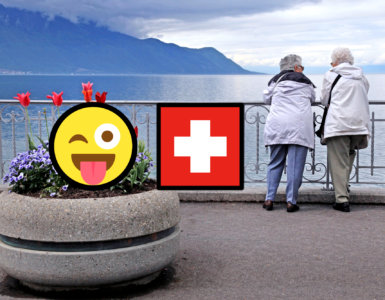Voulez-vous un cornet?
I hate to admit this, but it took me several months to understand this simple question after I moved to Western Switzerland (Suisse Romande). You will often hear it when you are at the checkout counter of a store. It is Swiss French, but in plain English, it means "Would you like a bag?"
Even if you have studied French for years, you might be puzzled by this question. It uses the word cornet instead of sac en plastique to describe a plastic bag. This is just one example of how French in Switzerland differs from across the border in France.
After living in Western Switzerland for three years now, I wanted to share what I have learned about Swiss-French so far. It might be helpful or save you from an embarrassing moment or two (or dozens, in my case!) caused by a linguistic misunderstanding.
About the French speaking part of Switzerland
According to the Federal Statistics Office, about 23 percent of Swiss residents declared French as their main language in 2013 (nearly 64 percent declared German). French is one of Switzerland's four national languages. (The other three are German, Italian and Romansh.)
On the western side of the Röstigraben — an invisible line dividing the different language regions of Switzerland — there are six French-speaking cantons: Vaud, Valais, Neuchâtel, Geneva, Jura, and Fribourg.
Of these cantons, three are bilingual in French and German: Bern, Fribourg and Valais. For example, the city of Biel (German)/Bienne (French), has street signs written in both languages.
Swiss French Vocabulary and Expressions
Swiss French has its own accent, vocabulary and expressions, which differ from French spoken in neighboring France. Even within Suisse Romande, there are regional variations. Some of the first differences you may notice in Switzerland, when compared to France, involve numbers and meals.
- Numbers: In Switzerland, you can use septante, huitante and nonante for 70, 80 and 90, respectively - compared to soixante-dix, quatre-vingts and quatre-vingt-dix in France. However, this usage varies within Suisse Romande. I've been told you'll hear quatre-vingts in Neuchâtel and huitante in Lausanne, for example.
- Meals: You say déjeuner, dîner and souper for breakfast, lunch and dinner in Switzerland, while it's petit-déjeuner, déjeuner and dîner in France.
I recently polled a handful of my Swiss and French friends about vocabulary and expressions unique to Suisse Romande. Altogether, I ended up with dozens of different words and phrases, some of which I was familiar with already, like “natel” (Swiss-French) vs. “portable” (French) for cell phone; or “action” (Swiss-French) vs. “promotion” (French) for special offer. I also learned Swiss-French has its own words for some common household linens: panosse (floor cloth), lavette (face cloth), linge de cuisine (dish towel) and linge de bain (bath towel).
Here are a few other examples of Swiss-French words and phrases shared by my friends:
- chenit - A Vaudois word meaning "désordre" in French or disorder/mess in English.
- cheneau - In Suisse Romande, this means "gutter," but in France, the word is "gouttière."
- ... ou bien? - You'll find this at the end of a phrase, like “"Tu viens, ou bien?" In France, you would replace “ou bien” with "ou quoi", or "ou alors," according to Mathieu Avanzi, a linguist conducting research at the University of Geneva on regional French varieties. The tag question appears at the end of a phrase to indicate an alternative option—similar to using “or what?” in English.
- parquer la voiture - An expression that means "park the car." In France, you would use the phrase, "garer la voiture."
- rebibes - Small pieces of hard cheese, such as thinly shaved and rolled cylinders of L’Etivaz served during an apéro.
- Tout de bon! - An expression used when saying good-bye to someone. A French friend translates this to "Je vous souhaite le meilleur!" (I wish you all the best).
I have also asked my friends for their opinions on Swiss-French in comparison to the French spoken in France. A Swiss friend mentioned that French is spoken at a slower pace in Switzerland, which is something I have often heard.
A French friend thinks that Swiss-French sounds "old", as it still uses words from 200 years ago. Also, in terms of the accent, another Swiss friend wrote that "[the] French find the Swiss-French accent very strong and not very sexy!"
I still have a lot to learn, but I hope this gives you some helpful background information on Swiss-French. What are some other typical Swiss-French words and phrases? How do you think Swiss-French compares to French spoken in France?
Download our list of typical Swiss French words and expressions!
This free PDF contains more than 30 typical Swiss-French words and expressions, along with their French counterparts and English translations.

More Information about the Swiss French language
- Centre de dialectologie et d'étude du français régional (Université de Neuchâtel)
- Expressions imagées suisses (TV5 MONDE)
- Français de nos régions (Université de Neuchâtel) – The Université de Neuchâtel and its partners are currently conducting an online survey of native Swiss-French speakers to better understand regional words and expressions used in Suisse Romande. Click on the link for more information and to participate in the survey.
- Glossaire des patois de la Suisse romande (Université de Neuchâtel)
- Le Parlomètre romand (RTS)






